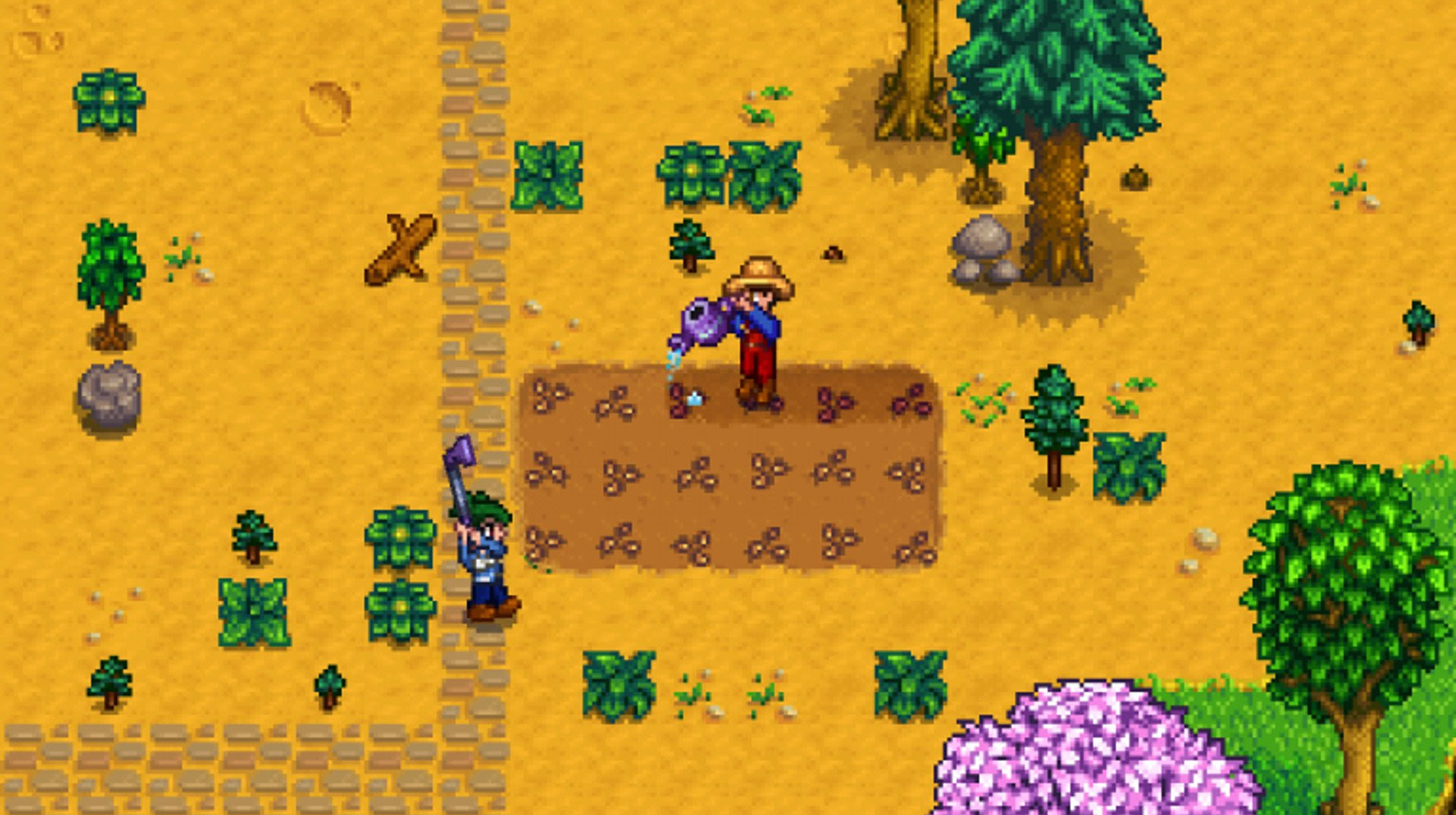Games for Social Connectedness
March 18, 2020 / by Rachel Kowert, PhD, Raffael Boccamazzo, PsyD and Take This
Online gamers have been historically portrayed as awkward or loners, riddled with social anxiety, and drawn to lives of social isolation from the rest of society. Part of this is due to the fact that online gaming spaces themselves are branded as “pseudo communities,” as people assume they provide a false sense of social support. That is, people largely assume online communities waste the time that could be spent fostering meaningful, more valuable, offline relationships. However, research tells us these assumptions are untrue. Online games are social hubs which allow us to reconnect with distanced friends and an easily accessible place to make new friends. In times of isolation, it is more important than ever to recognize the error of these assumptions.

Stardew Valley - Chucklefish Games
A considerable amount of research has found that the internet provides the ability to foster meaningful social relationships. If you ask players themselves, they will tell you that online contacts are as “real” as any offline friendship. Up to 75% of online game players report making “good friends” within their gaming communities. Of those, between 40% and 70% report regularly discussing “offline” issues with online friends, including concerns that they have not discussed with their offline friends. In other words, people not only view their online relationships as meaningful, online spaces provide a method of communicating important personal topics with others.
Not only do online gaming spaces provide an easily accessible social space that can grant access to new friends, but they can also bolster pre-existing ones. Individuals who play online video games with pre-existing friends report a range of benefits. For example, they report less loneliness, greater social engagement, and of a higher quality, with their friends and family than those who played with strangers. In this sense, online games should be thought of as tools that can help to maintain relationships from the convenience of a keyboard or controller, no matter where each of you are in the world (for more on this see here).
Just like “offline” friendships, online friendships are capable of producing all the resources that makes them… well, friendships. Researchers call those resources social capital – the physical, emotional, and social resources for which we lean on each other. For example, we might call a friend or neighbor when we need to talk – a social resource. We might go to their house when we need a hug – an emotional resource. If someone needs help moving, the friend who is the first one there with a pizza offers physical resources. Online friends can provide similar resources. Both authors of this article (who live thousands of miles apart) often call each other when we need to talk (social resource). The comfort and advice the other offers when we feel vulnerable or lonely (emotional resource) is invaluable. If one of us needed to move, the other could send over a pizza (physical resources). While there are some things we can’t do thousands of miles apart, that doesn’t make our friendship any less valuable. The social capital is still there.The accessibility of the internet has helped transcend the traditional boundaries which may have once warranted a distinction between offline and online friends. Today, these boundaries are far more fluid, which is particularly advantageous when life’s current circumstances are keeping us more physically isolated. Online games are one of the wonderful, convenient platforms that have transcended these boundaries and helped make millions of new friendships and strengthened existing ones.
As our isolation grows by the day in response to the global crisis of COVID-19, games could be key in reducing loneliness and fostering a sense of connection whilst physically isolated in our homes. Knowing this, it is perhaps unsurprising to find that video game play has not been found to be a direct contributor to increased loneliness, regardless of the stereotypical characterizations. Pick a game. Give it a shot. Both of us are planning on playing a lot of the new Animal Crossing game.
